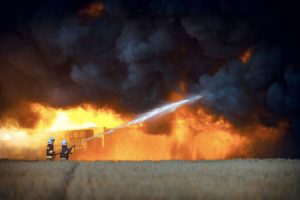 mergencies can create a variety of hazards for workers in the impacted area. Preparing before an emergency incident plays a vital role in ensuring that employers and workers have the necessary equipment, know where to go, and know how to keep themselves safe when an emergency occurs.
mergencies can create a variety of hazards for workers in the impacted area. Preparing before an emergency incident plays a vital role in ensuring that employers and workers have the necessary equipment, know where to go, and know how to keep themselves safe when an emergency occurs.
If an Emergency Does Occur:
Because no two emergencies or emergency situations are exactly alike, I can’t give you complete details on what to do in every emergency. Sometimes common sense applies. But what I can do is give you some general pointers about what to do in an emergency.
- First, make sure you know how to report an emergency. This could be a fire, a chemical spill, an explosion, or some other type of incident.
- If someone else spots the emergency, you’ve got to know how to react to our alarm. A true emergency calls for evacuation. Make sure you know how to get out of the building safely and help others to do the same. Once you’re out, it is very important that you go directly to your assigned meeting place.
- Some of you may also have specific jobs in emergencies. We’re counting on you to stay in control and perform these tasks before getting out of the building.
Summary:
Your safety, and the safety of others, relies on your ability to respond calmly and appropriately in the event of an emergency. If you are unsure of your role and responsibilities during an emergency situation, see your supervisor immediately.
“There’s no harm in hoping for the best as long as you’re prepared for the worst.” -Stephen King
Download flyer: STOTW_603_Actions in Emergencies Download Spanish flyer: STOTW_603_Actions in Emergencies_esp

